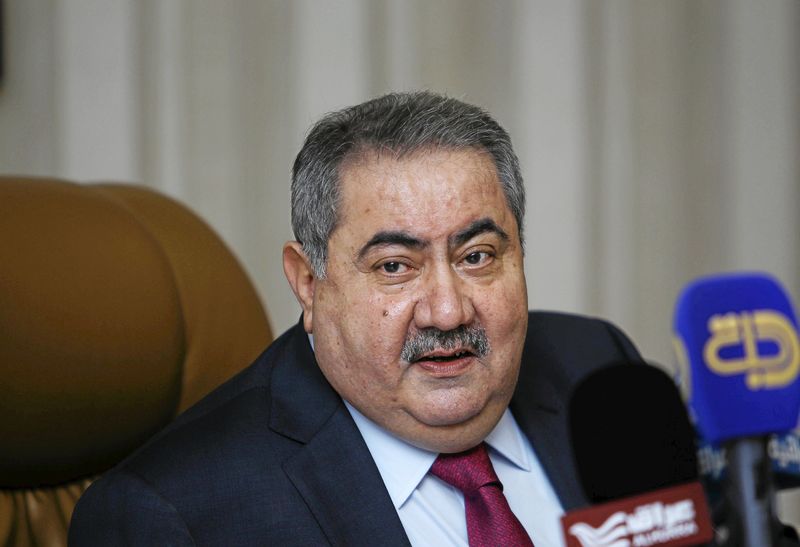BAGHDAD (Reuters) - Iraq is ready to take part in an extraordinary OPEC meeting and even reduce its fast growing output if all OPEC and non-OPEC members agree - a deal which at this stage seems elusive, the country's finance minister said.
Hoshiyar Zebari said in an interview Iraq is willing to take part in meetings that Venezuela has called for in order to lift oil prices that have plunged to 12-year lows near $30 a barrel.
The Organization of the Petroleum Exporting Countries said it was considering a request from cash-strapped Venezuela to hold an emergency meeting. Venezuela has also called for a meeting of OPEC and non-OPEC nations in February.
"Iraq is a founding member of OPEC, so we will definitely take part, and the idea would be to reduce production actually to impact the oil price," Zebari said.
"Not sure we will say yes to Venezuela because we need to produce more, because of the challenges we have, but if we believe there would be a consensus, a collective decision then we might go with it."
So far, only Algeria and Venezuela have clearly expressed support for a production cut, he said. Fellow OPEC member Saudi Arabia and Russia, a non-OPEC exporter, have not, Zebari added.
Venezuela's oil minister will tour OPEC and non-OPEC countries in a bid to win support for joint action, President Nicolas Maduro announced on Tuesday night.
The decision to cut production "needs to be a collective one, otherwise it will not work; it doesn't seem there is a consensus, apart from Venezuela, Algeria," Zebari said.
"Other countries, the Saudis or the BRICS people I don't think," he said, referring to the group that comprises oil exporter Russia and major producer Brazil, along with India, China and South Africa.
OPEC Secretary-General Abdullah al-Badri on Monday said other producers should work with the group to tackle swollen global stockpiles, essentially reiterating OPEC's position that it would consider cutting output only if others pitched in.
Moscow, seen as key to any agreement, has so far refused to cooperate. But Leonid Fedun, vice-president of Lukoil, Russia's second-largest oil producer, was quoted as saying on Monday Moscow needed to start working with OPEC.
Oil prices have fallen to around $30 a barrel from over $100 two years ago, hurting Iraq's budget at time when the country is fighting the ultra hardline Islamic State group. Iraq depends on crude sales for about 95 percent of its public revenue.

Zebari said there are "encouraging signs" that prices could rebound this spring on lower output from higher cost U.S. shale oil producers. He said the reason that many shale oil operators were still in business was that they had sold long-term contracts based on $70 oil, and these contracts will come to an end in the spring.